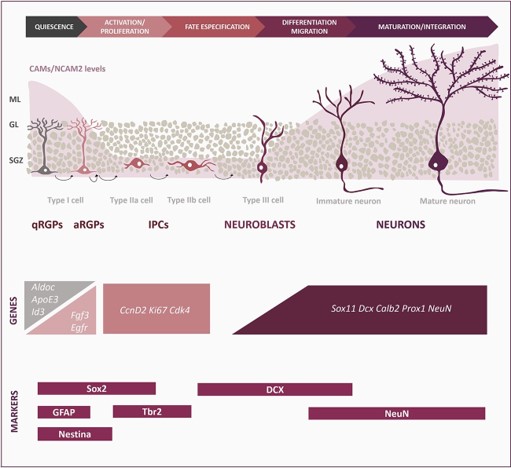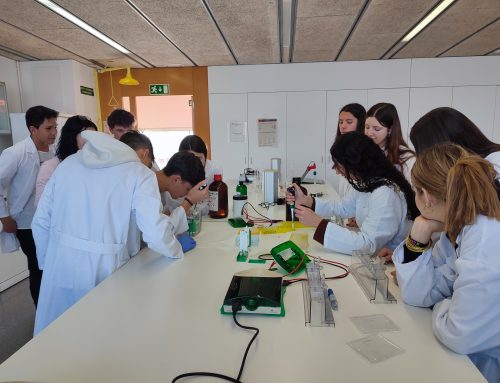
Article: Regulation of young-adult neurogenesis and neuronal differentiation by neural cell adhesion molecule 2 (NCAM2)
Authors: Antoni Parcerisas (co-primer autor) i Lluís Pujadas (co-autor de correspondència)
Abstract:
Adult neurogenesis persists in mammals in the neurogenic zones, where newborn neurons are incorporated into preexisting circuits to preserve and improve learning and memory tasks. Relevant structural elements of the neurogenic niches include the family of cell adhesion molecules (CAMs), which participate in signal transduction and regulate the survival, division, and differentiation of radial glial progenitors (RGPs). Here we analyzed the functions of neural cell adhesion molecule 2 (NCAM2) in the regulation of RGPs in adult neurogenesis and during corticogenesis. We characterized the presence of NCAM2 across the main cell types of the neurogenic process in the dentate gyrus, revealing different levels of NCAM2 amid the progression of RGPs and the formation of neurons. We showed that Ncam2 overexpression in adult mice arrested progenitors in an RGP-like state, affecting the normal course of young-adult neurogenesis. Furthermore, changes in Ncam2 levels during corticogenesis led to transient migratory deficits but did not affect the survival and proliferation of RGPs, suggesting a differential role of NCAM2 in adult and embryonic stages. Our data reinforce the relevance of CAMs in the neurogenic process by revealing a significant role of Ncam2 levels in the regulation of RGPs during young-adult neurogenesis in the hippocampus. Furthermore, we reveal the importance of Ncam2 expression in regulating neuronal migration and differentiation during corticogenesis in the embryonic development. Overall, the present study contributes to a better understanding of the implications of NCAM2 during neuronal development and adult plasticity, and opens new research lines to explore the molecular basis of DS pathogenesis.











What is the main focus of the research conducted in the article “Regulation of young-adult neurogenesis and neuronal differentiation by neural cell adhesion molecule 2 (NCAM2)”? Regards, Telkom University/a>